truth
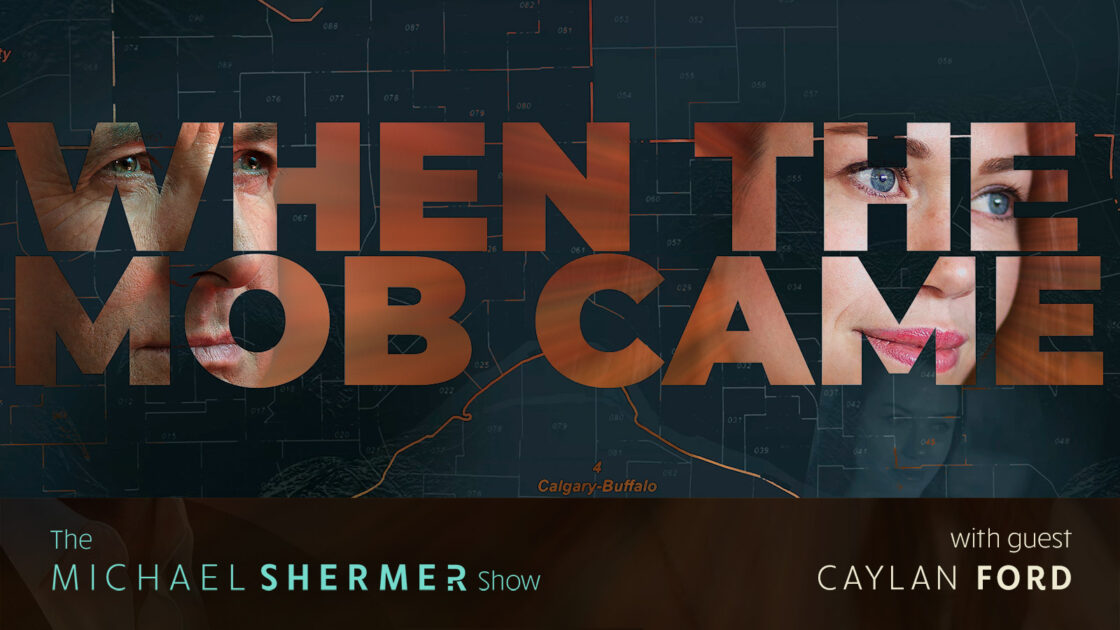
Shermer and Ford discuss: • education reform • public vs. private vs. charter schools • the blank slate • Thomas Sowell’s Constrained Vision vs. Unconstrained Vision • French Revolution vs. American Revolution • truth, justice, and reality • what promotes humanity and what degrades it • transhumanism • political correctness • identity politics • cancel culture • totalitarianism • preference falsification • free speech • hate speech • how to stand up to cancel culture.
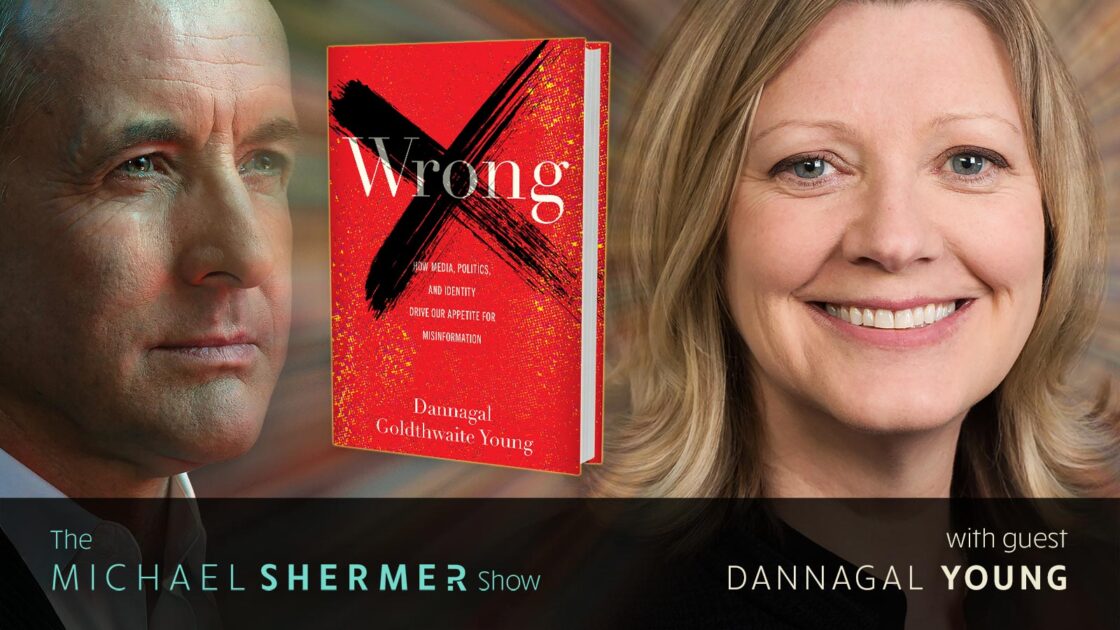
Shermer and Young discuss: how do you know if you are wrong, or that someone else is wrong • the evolution of reason: veridical perception or group identity? • the 3 “Cs” of our needs: comprehension, control, community • open-minded thinking • intellectual humility • political polarization • echo vs. identity chambers • social media • lies • disinformation • Donald Trump • democracy • science and morality • solutions to identity-driven wrongness.
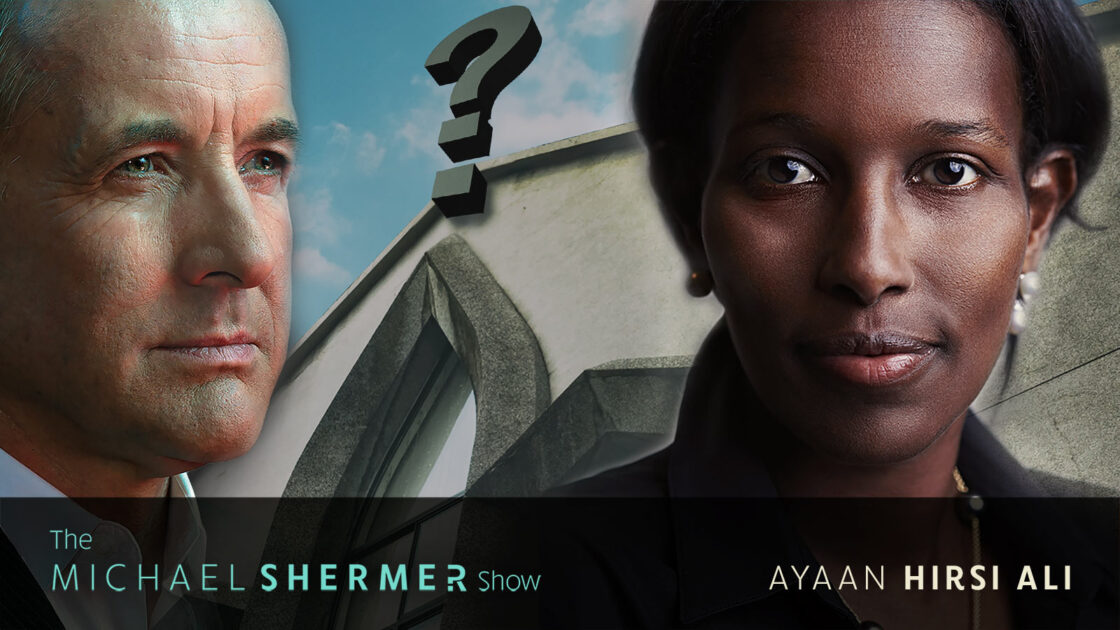
On November 11, 2023, my friend, colleague, and hero Ayaan Hirsi Ali released a statement explaining “Why I am Now a Christian”. What follows is my response, “Why I am Not a Christian,” and why in any case the alternative to theistic morality is not atheism but Enlightenment humanism—a cosmopolitan worldview that places supreme value on human and civil rights, individual autonomy and bodily integrity, free thought and free speech, the rule of law, and science and reason as the…
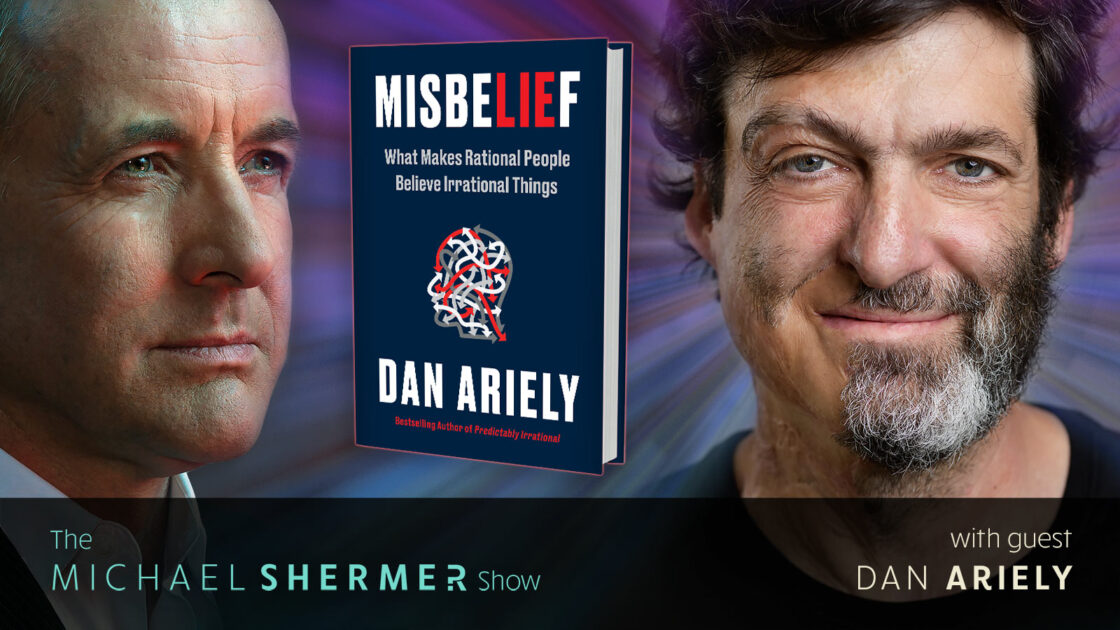
Shermer and Ariely discuss: What is disinformation and what should we do about it? • How do we know what is true and what to believe? • virtue signaling one’s tribe as a misbelief factor • the role of complex stories in misbelief • emotions, personality, temperament, trust, politics, and social aspects of belief and misbelief • the funnel of belief • social proof and the influence of others on our beliefs • a COVID-23 pandemic • social media companies…
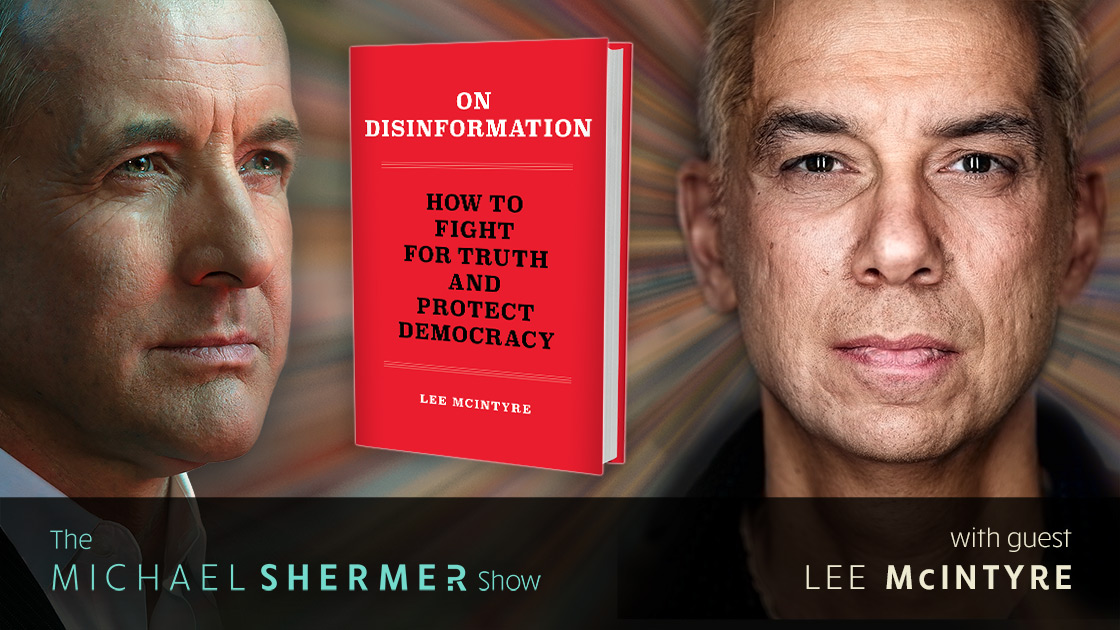
Shermer and McIntyre discuss: default to truth theory • RFK Jr. • whether reason evolved for veridical perception or group identity? • How do we know what is true and what to believe? • worst case scenarios if Donald Trump wins in 2024 • trans issues, race issues, GMOs, nuclear power, climate doomsdayism • What went wrong during the COVID-19 pandemic? • disinformation about masks, vaccines • social media and disinformation.
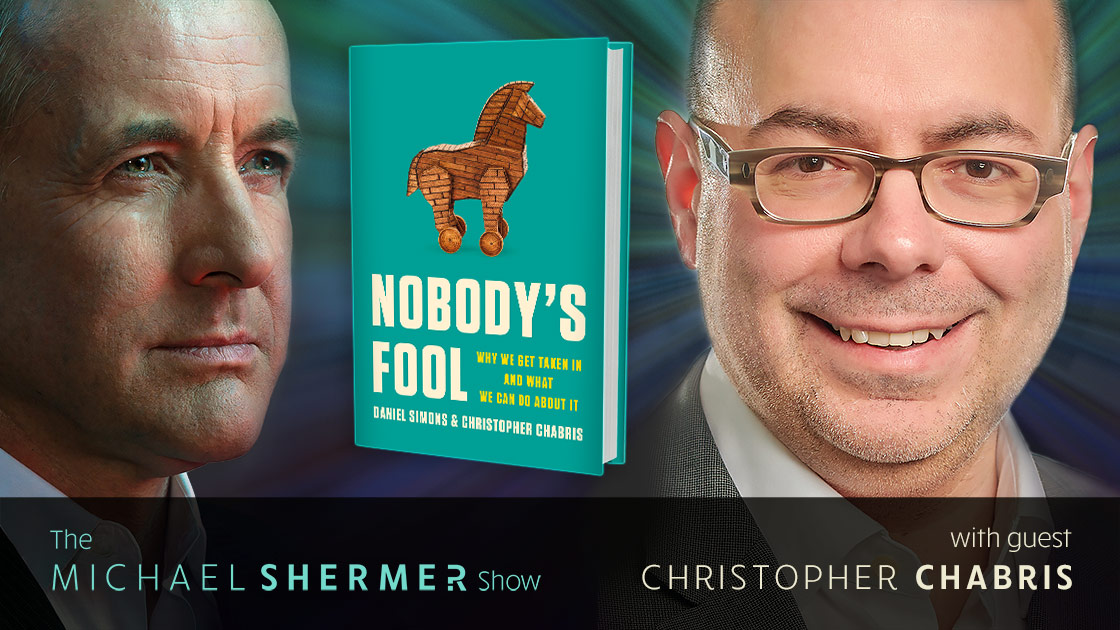
Shermer, Simons, and Chabris discuss: • How rational vs. irrational are humans? (Daniel Kahneman vs. Gerd Gingerenzer) • Truth Default Theory, or Truth Bias • deception vs. deception detection • social proof and the influence of others on our beliefs • cults • Bernie Madoff • Harvey Weinstein • Elizabeth Holmes and Theranos • Nigerian spam scam • cheating in chess • habits of thought that can be exploited • information hooks we find especially enticing instead of triggering skepticism…
We are fascinated and enraged by pathological liars like George Santos, who lie with every breath. But everybody lies, out of courtesy, self-protection, or self-advancement. Toddlers start lying as soon as they start speaking, suggesting that deception evolved right along with language as an adaptive strategy. The social danger is not that people lie, but the obliteration of the line between a lie and its consequences. Once, anyone lying as blatantly as Santos would have been shamed or laughed out…
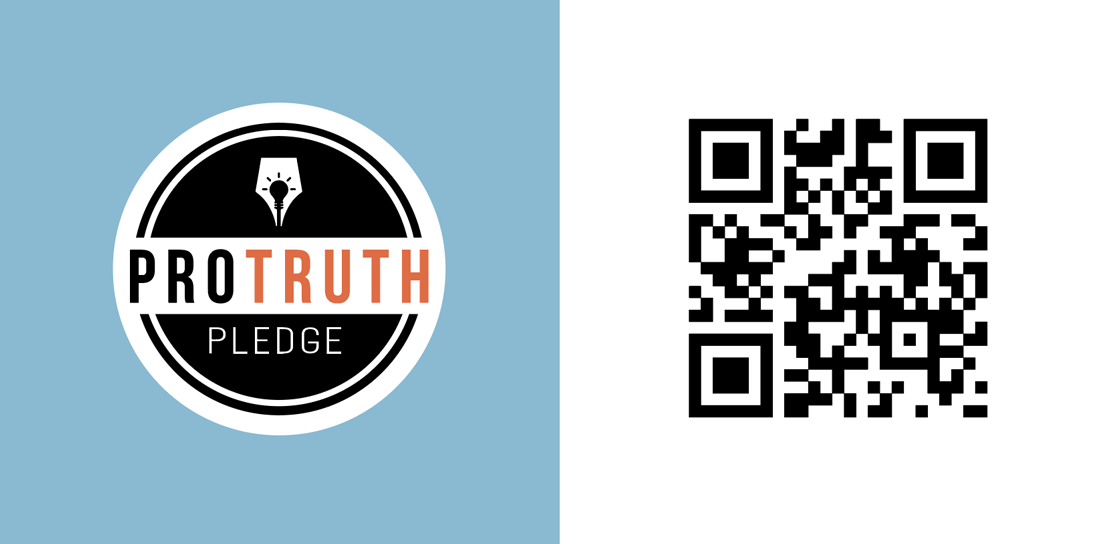
In our “post-truth” world, objective facts are less influential in shaping public opinion than appeals to emotion and personal belief. In the U.S., citizens’ trust in their government is at historically low levels, and the trust gap is difficult to bridge because individuals who practice deceptive behaviors often gain. This type of situation is known as a “tragedy of the commons.” Behavioral scientist Gleb Tsipursky offers the Pro-Truth Pledge (PTP) as one solution to help rebuild trust in and decrease…

Ever since the Enlightenment philosopher David Hume outlined the “Is-Ought” problem—that we cannot derive an ought from an is, or we cannot determine the way something ought to be morally based on the way things are in nature (the classic example being slavery—because ants practice slavery that doesn’t make it natural and therefore acceptable for humans to practice slavery)—people have struggled to figure out on what basis should moral values be grounded. Of course, theists argue that God is that…

Human perception and memory are notoriously inaccurate. Preconceptions and biases shape both our perceptions of events and how we recall them later. Mick West considers how to think about eyewitness testimony so that it does not become emotional and swiftly evolve into an overly polarized argument.
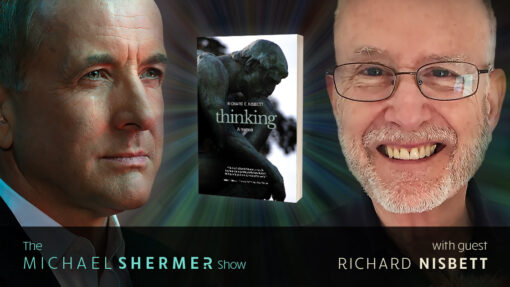
In a wide-ranging conversation Shermer and Richard Nisbett discuss Nisbett’s research showing how people reason, how people should reason, why errors in reasoning occur, and how much you can improve reasoning.
Michael Shermer is now writing on Substack with a new, weekly column called Skeptic: Examining the World Through a Scientific Lens. PLUS in a wide-ranging conversation Shermer and Richard Nisbett discuss Nisbett’s research showing how people reason, how people should reason, why errors in reasoning occur, and how much you can improve reasoning.

In episode 212, Michael Shermer speaks with Gale Sinatra and Barbara Hofer about the key psychological explanations for science denial and doubt that can help provide a means for improving scientific literacy and understanding — critically important at a time when denial has become deadly.
In episode 212, Michael Shermer speaks with Gale Sinatra and Barbara Hofer about the key psychological explanations for science denial and doubt that can help provide a means for improving scientific literacy and understanding — critically important at a time when denial has become deadly.
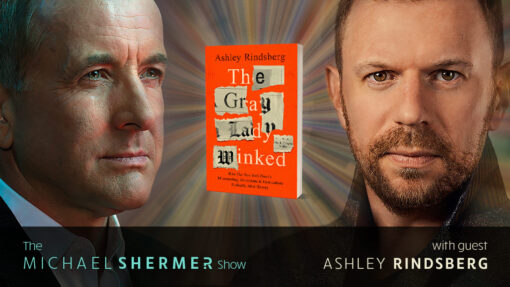
In episode 211, Michael Shermer speaks with Ashley Rindsberg about his book The Gray Lady Winked in which he pulls back the curtain to reveal an eye-opening, often shocking, look at the New York Times’s greatest journalistic failures, so devastating they changed the course of history.
In episode 211, Michael Shermer speaks with Ashley Rindsberg about his book The Gray Lady Winked in which he pulls back the curtain to reveal an eye-opening, often shocking, look at the New York Times’s greatest journalistic failures, so devastating they changed the course of history.
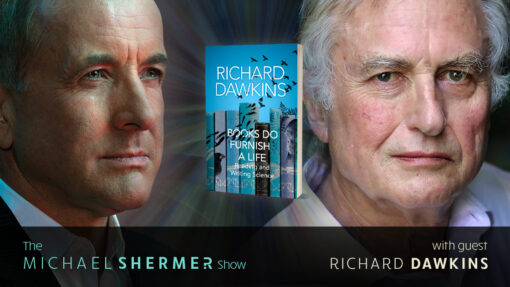
Michael Shermer and Richard Dawkins discuss: conversations with Neil DeGrasse Tyson, Steven Pinker, Matt Ridley, and Christopher Hitchens • Popperian falsification vs. Bayesian reasoning • evolutionary adaptationism • the myth of natural selection as a “force” • E.O. Wilson and group selection, multilevel selection, and other misunderstandings about evolutionary theory • metaphors and analogies in science: artificial selection • convergent evolution • ETIs • Trumpism, and more…
In episode 205, Michael Shermer speaks with Richard Dawkins about evangelizing for evolution, science, skepticism, philosophy, reason, and rationality, based on his new book Books Do Furnish a Life: Reading and Writing Science.
In episode 190, Michael Shermer speaks with Jonathan Rauch as he reaches back to the parallel eighteenth-century developments of liberal democracy and science to explain what he calls the “Constitution of Knowledge” — our social system for turning disagreement into truth.
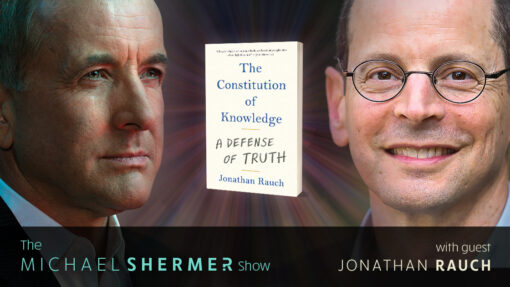
In episode 190, Michael Shermer speaks with Jonathan Rauch as he reaches back to the parallel eighteenth-century developments of liberal democracy and science to explain what he calls the “Constitution of Knowledge” — our social system for turning disagreement into truth.
NEXT →






















